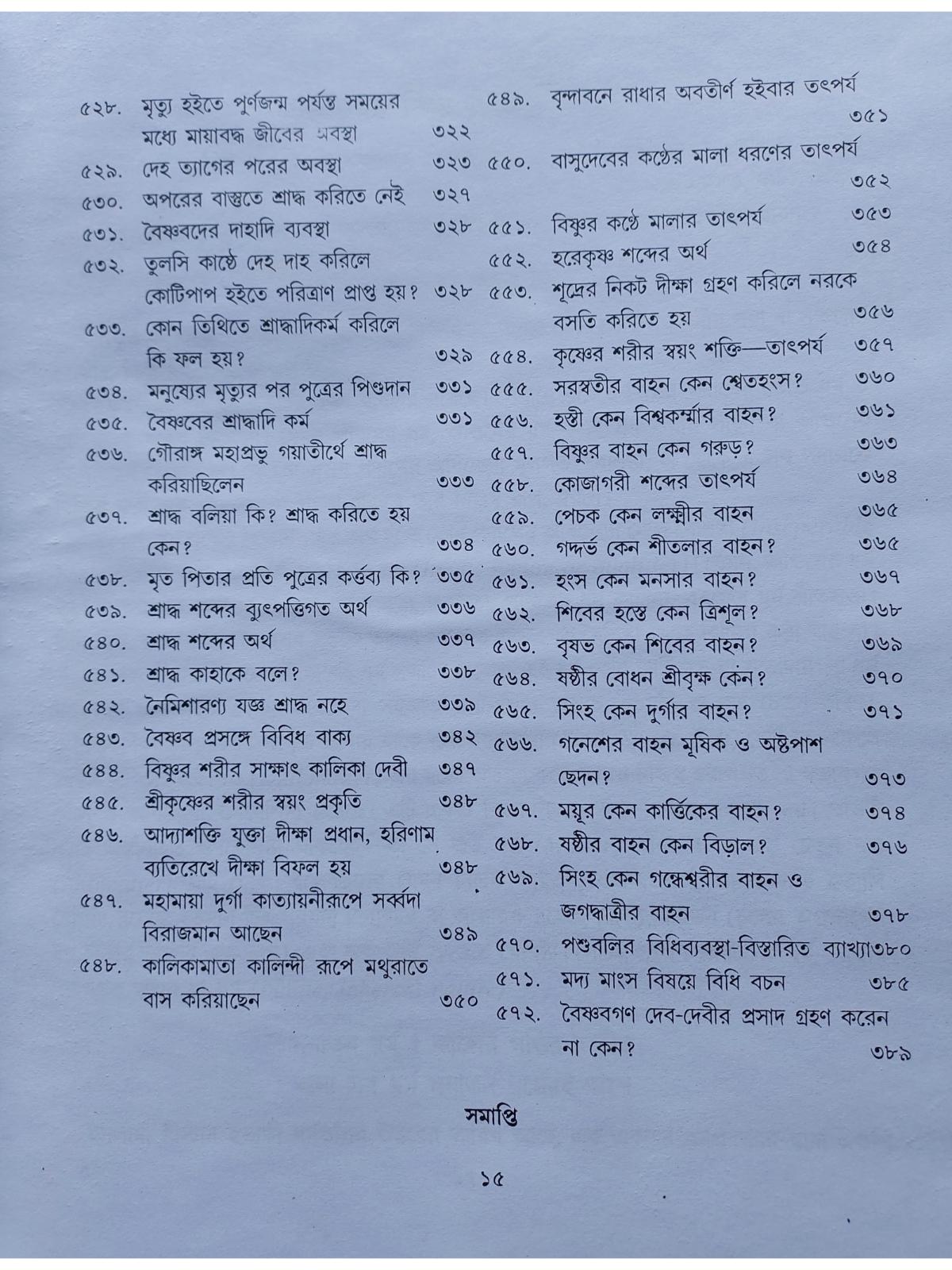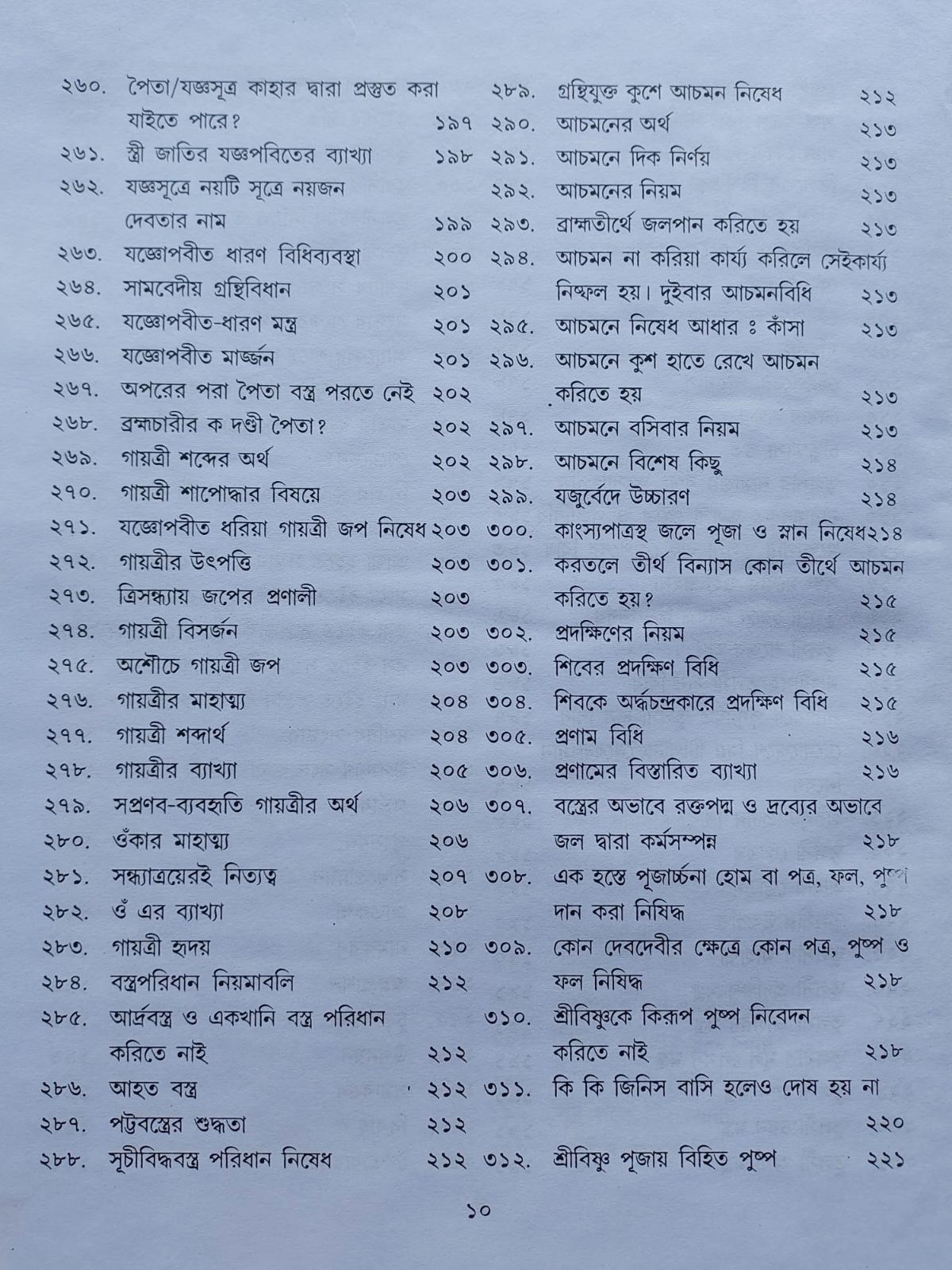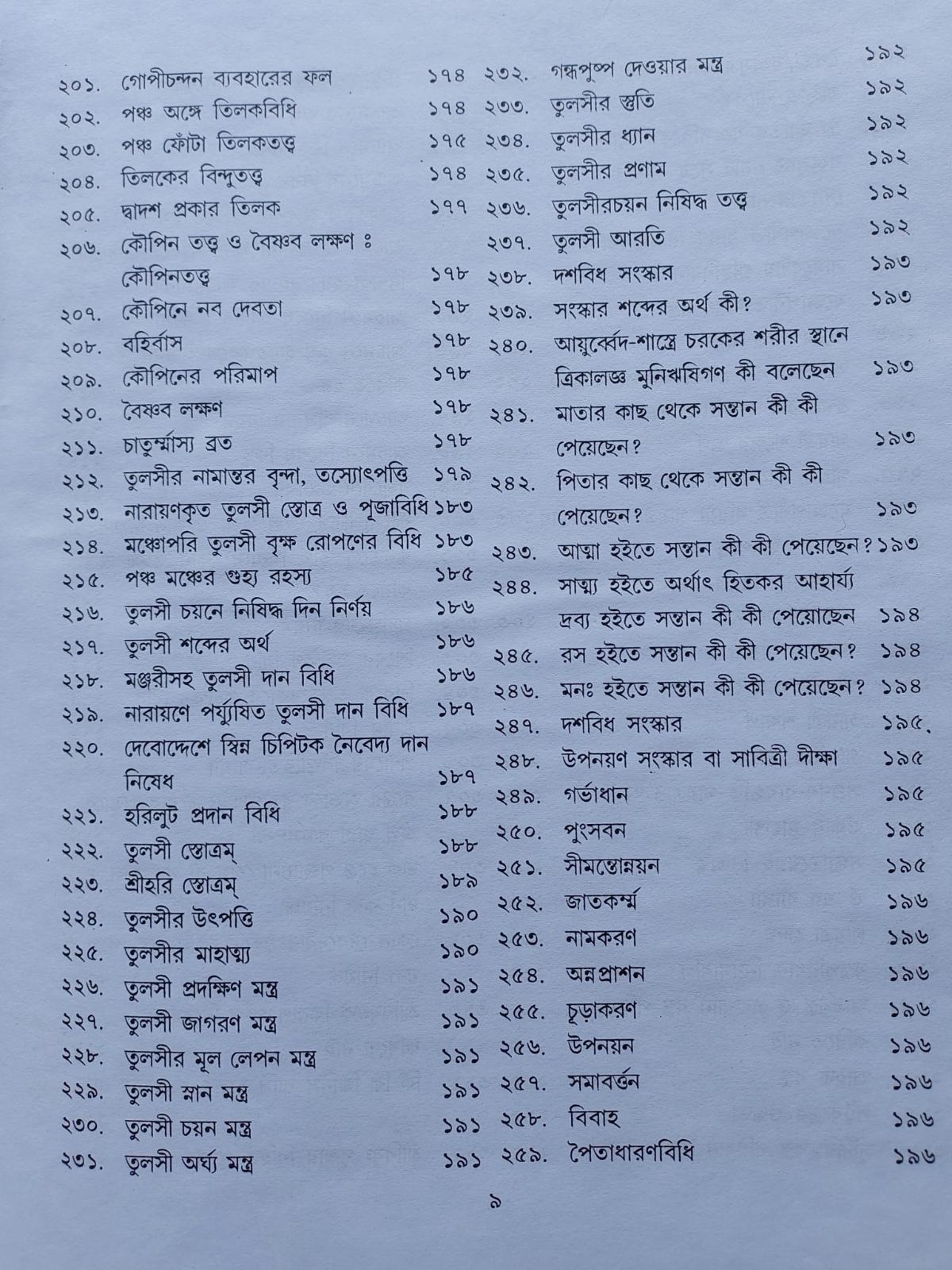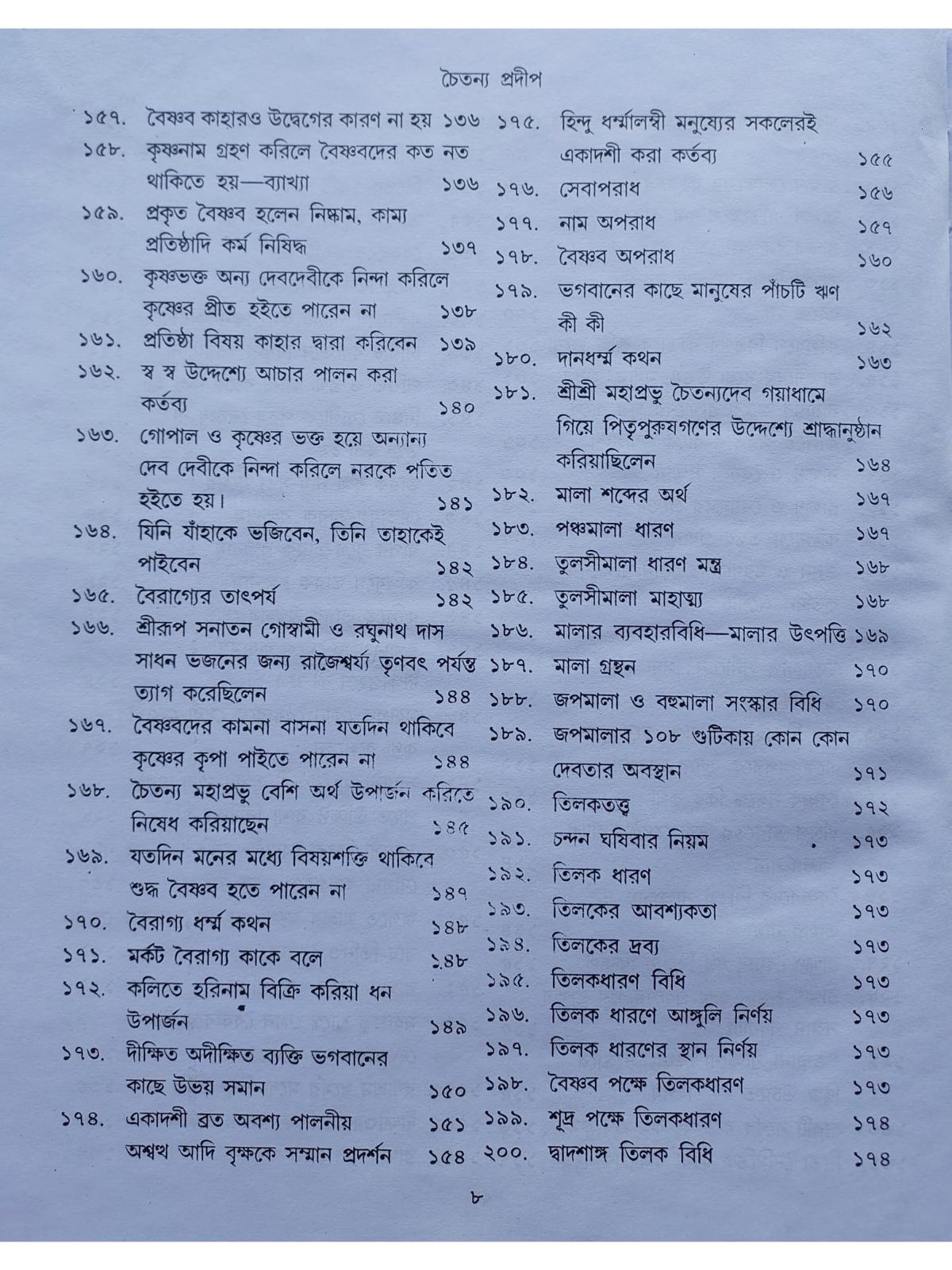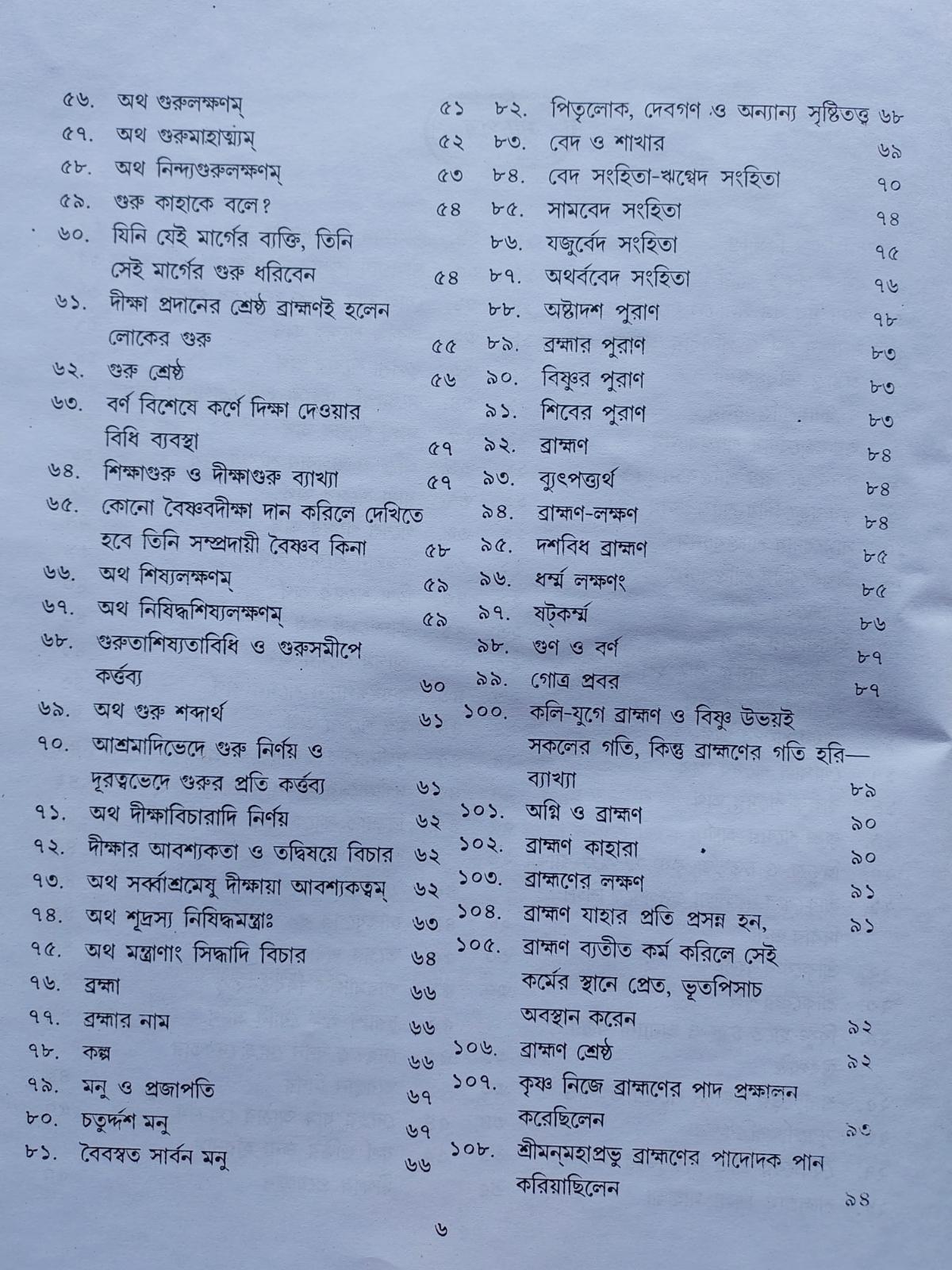Description
Buy Chaitanya Pradeep Book written by Sri Tapan Chakraborty and published by Maa Bhabatarini Prakashani. Get a huge number of Book written by Sri Tapan Chakraborty from our online book shop.
We have a tremendous collection of Books written by Sri Tapan Chakraborty. Maa Bhabatarini Prakashani is a popular name in publication world. Almost all books published by Maa Bhabatarini Prakashani are available in our online store.
Chaitanya Pradeep is one of the bestselling books. If you are searching Chaitanya Pradeep then you are at right place. You can buy Chaitanya Pradeep at an affordable price.
About Baishnab Religion
The term “Baishnab” or “Vaishnav” refers to a follower of Vaishnavism, which is one of the major traditions within Hinduism. Vaishnavism revolves around the worship of Lord Vishnu, who is considered the supreme deity or the preserver of the universe in Hindu theology. Vaishnavism has a rich and diverse history, and its beliefs and practices can vary significantly among its followers. Here are some key aspects of the Baishnab or Vaishnav religion:
Worship of Lord Vishnu: The central focus of Vaishnavism is the devotion and worship of Lord Vishnu or one of his avatars (incarnations), such as Lord Krishna or Lord Rama. Followers of this tradition believe that Vishnu is the ultimate reality and the source of all creation.
Theology: Vaishnavism emphasizes monotheism, with Lord Vishnu being the supreme and all-pervading deity. The theology often centers on the concepts of bhakti (devotion) and surrender to the divine. Devotees seek a personal relationship with the deity through prayer, rituals, and devotion.
Bhakti Movement: Vaishnavism played a significant role in the broader Bhakti movement that swept through India, particularly during the medieval period. The Bhakti movement stressed the importance of intense devotion and a direct, emotional connection with the divine, irrespective of one’s social or caste background.
Scriptural Texts: Vaishnavism has a rich collection of sacred texts, with the most important being the Bhagavad Gita, the Vishnu Purana, and the Srimad Bhagavatam. These texts provide philosophical teachings and stories related to Lord Vishnu and his avatars.
Variety of Traditions: Within Vaishnavism, there are various sub-traditions and sampradayas, each with its own philosophical interpretations and practices. Some well-known sampradayas include the Sri Vaishnavism (associated with Ramanuja), Gaudiya Vaishnavism (associated with Chaitanya Mahaprabhu and ISKCON), and Vallabha sampradaya (associated with Vallabhacharya), among others.
Worship Practices: Devotees of Lord Vishnu engage in various forms of worship, including temple rituals, singing of devotional songs (bhajans and kirtans), reading sacred texts, and participating in festivals dedicated to Vishnu or his avatars.
Symbols and Icons: Symbols associated with Vaishnavism include the conch shell (shankha), the discus (chakra), the mace (gada), and the lotus (padma), which are often depicted as attributes of Lord Vishnu. Statues and images of Vishnu and his avatars are commonly found in temples.
Social Outreach: Many Vaishnavite sects and organizations are involved in social service and charitable activities, often inspired by their devotion to Lord Vishnu and the principle of selfless service (seva).
Spread Beyond India: Vaishnavism is not limited to India and has followers in many countries around the world, particularly through the International Society for Krishna Consciousness (ISKCON), founded by A.C. Bhaktivedanta Swami Prabhupada.
Overall, Vaishnavism is a prominent and widely followed tradition within Hinduism, characterized by its emphasis on devotion to Lord Vishnu and the belief that salvation can be attained through loving surrender to the divine. It has had a profound impact on the religious and cultural landscape of India and beyond.


